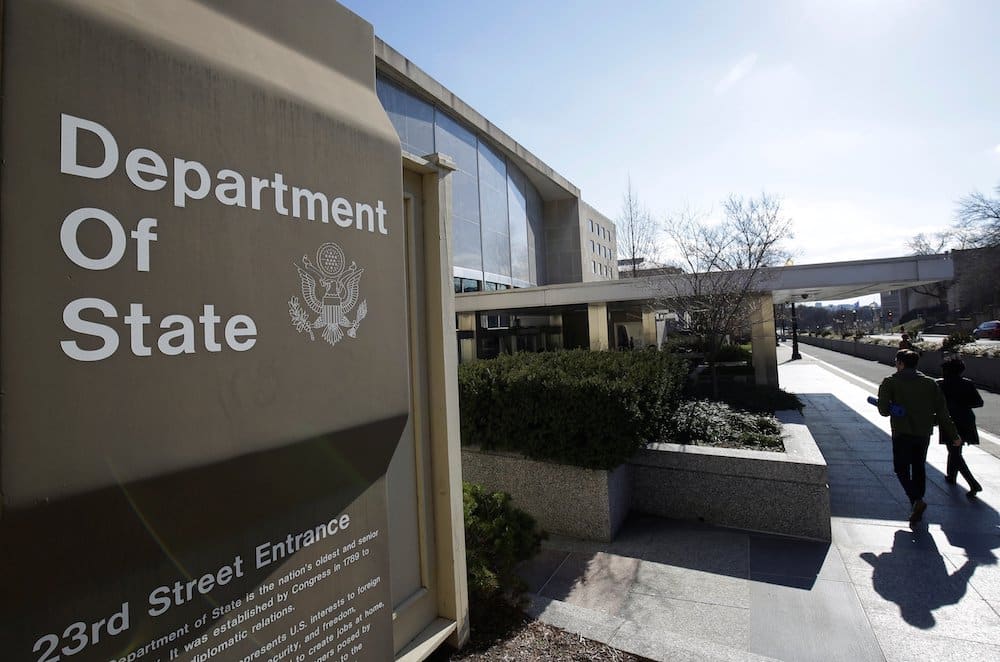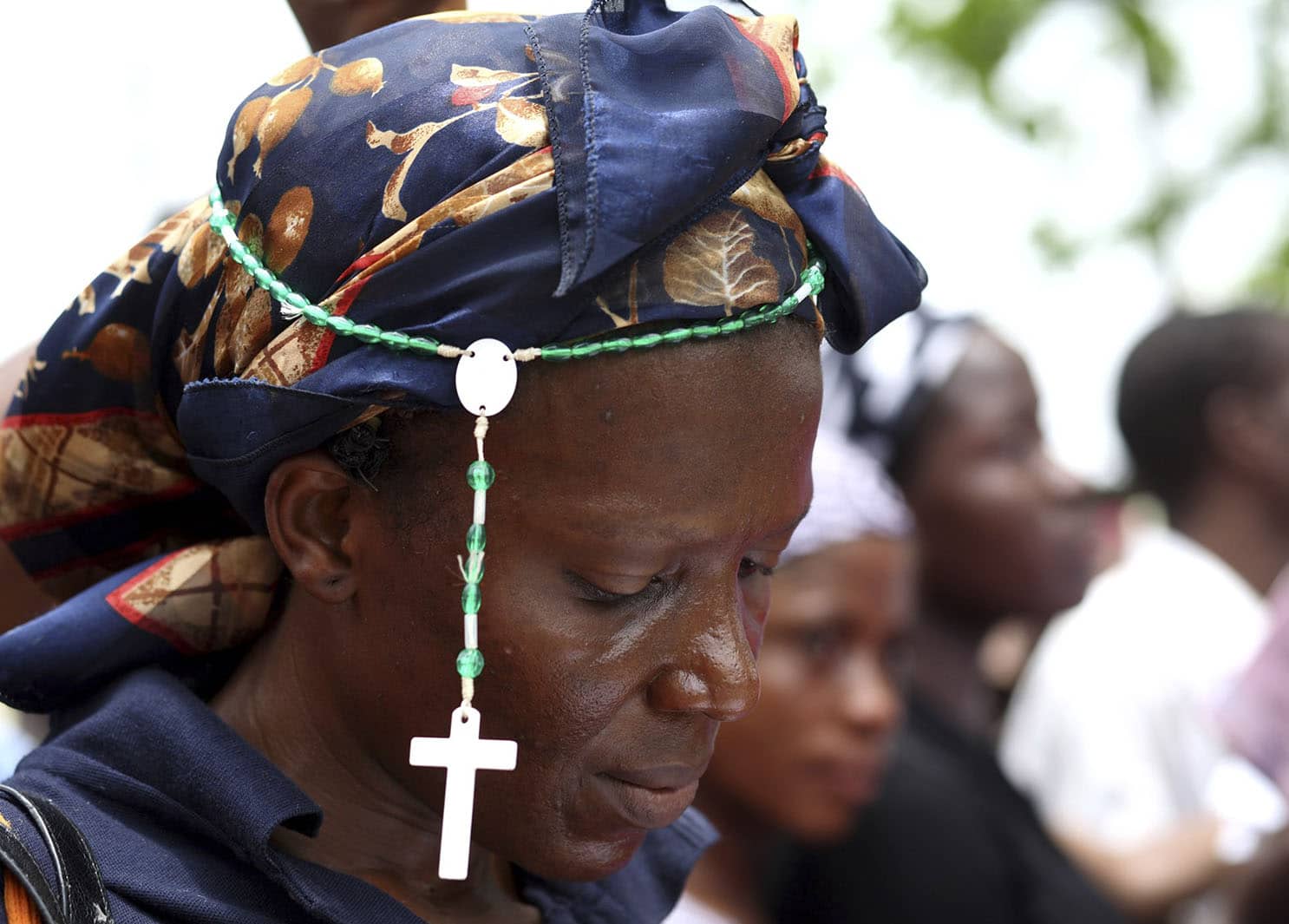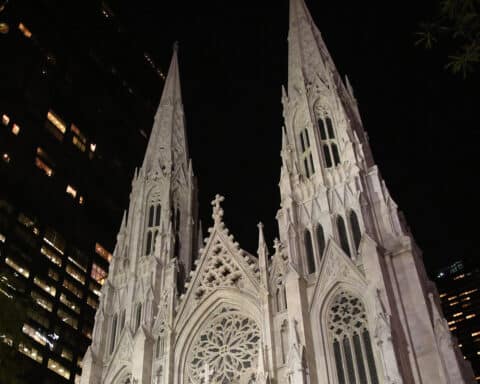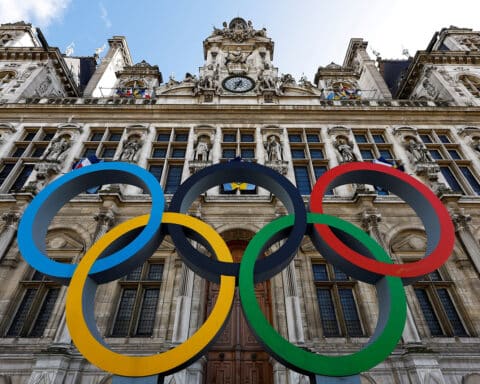WASHINGTON (OSV News) — Nigerian Christians are calling on the U.S. State Department to designate Nigeria as a “country of particular concern” in response to violence in that country perpetuated against predominantly Christian communities.
More than 100 people were killed and 300 injured in Nigeria’s Plateau state Dec. 23-24, 2023, in what some news outlets attributed to clashes over land between farmers and herders amid ecological changes brought about by climate change. But Bishop Wilfred Chikpa Anagbe of the Diocese of Makurdi in Nigeria’s Benue state told OSV News that the attacks are targeted against Christian communities.
“It is a jihad — purely a religious war — a genocide, the elimination of the Indigenous tribes who are mainly Christians,” he said.
Bishop Anagbe, a Claretian missionary, said he finds it frustrating that the violence is sometimes attributed in Western media to climate change and its impact on herding and farming.
“Climate change is a global problem — not just a Nigerian one,” Bishop Anagbe said, adding other conflicts aren’t dismissed as ecological problems.
Christian voice in danger
At a Jan. 30 event in the Capitol complex in Washington, hosted by the pontifical charity Aid to the Church in Need, Bishop Anagbe and other clergy showed graphic images and footage of Christians killed or injured by violence in a region of Nigeria known as the “Middle Belt.”
Bishop Anagbe told attendees that “gradually and systematically, the Christian voice is being reduced” in Nigeria.
The International Religious Freedom Act requires the annual designation by the U.S. government of “countries of particular concern,” or CPCs, defined as countries where governments either engage in or tolerate “particularly severe violations” of religious freedom. Non-state actors who engage in similar conduct are designated as “entities of particular concern.”
According to the State Department, when a country is designated as a CPC, Congress is notified and “where non-economic policy options designed to bring about cessation of the particularly severe violations of religious freedom have reasonably been exhausted, an economic measure generally must be imposed.”
Sounding the alarm about Nigeria
Earlier in January, the U.S. Commission on International Religious Freedom, an independent, bipartisan federal entity established by Congress to monitor religious freedom abroad, called for a Congressional hearing to examine why Nigeria and India were not designated as CPCs.
USCIRF chair Abraham Cooper and vice chair Frederick A. Davie said in a joint Jan. 4 statement that “There is no justification as to why the State Department did not designate Nigeria or India as a Country of Particular Concern, despite its own reporting and statements.”
“USCIRF calls on Congress to convene a public hearing on the failure of the State Department to follow our recommendations,” the joint statement said. “Days before Christmas, hundreds of Christians were killed in Nigeria, along with their Pastor. This is just the latest example of deadly violence against religious communities in Nigeria that even the State Department has condemned. The majority of Commissioners have travelled to Nigeria and noted the threats to freedom of religion or belief and the deadly implications to religious communities.”
The pair added that USCIRF met with the State Department “to sound the alarm” about Nigeria and India “but not all of our recommendations have been followed.”
They said, “We will not be deterred and will continue our role as a congressionally mandated watchdog to ensure the U.S. government prioritizes religious freedom as a key component of U.S. foreign policy.”

Why America hasn’t acted
In a Jan. 12 letter, House Foreign Affairs Committee chair Michael McCaul, R-Texas, Rep. Bill Huizenga, R-Mich., Subcommittee on Africa chair John James, R-Mich., among other lawmakers, wrote to Secretary of State Antony Blinken asking why Nigeria was not included on the list.
“Islamic State terror groups such as ISIS, al-Shabaab, Boko Haram, and al-Qaeda perpetuate this senseless violence across Africa,” the lawmakers said. “Throughout northern and central Nigeria, violent assaults on churches and their congregations are reportedly carried out on a near-weekly basis. It is clear that the Biden administration must make religiously motivated violence a top priority in its engagement with the Government of Nigeria.”
Asked at a Jan. 24 press briefing about the calls from religious freedom advocates to designate Nigeria as a CPC, Vedant Patel, the State Department’s principal deputy spokesperson, said “the assessment was made that the country did not meet the threshold for designation.”
“We continue to carefully monitor the religious freedom situation in every country, including, of course, Nigeria,” Patel said. “And a key component of our diplomacy is engaging not just with government entities but also outside groups, humanitarian organizations, and civic society leaders, and we’ll continue to do so.”





